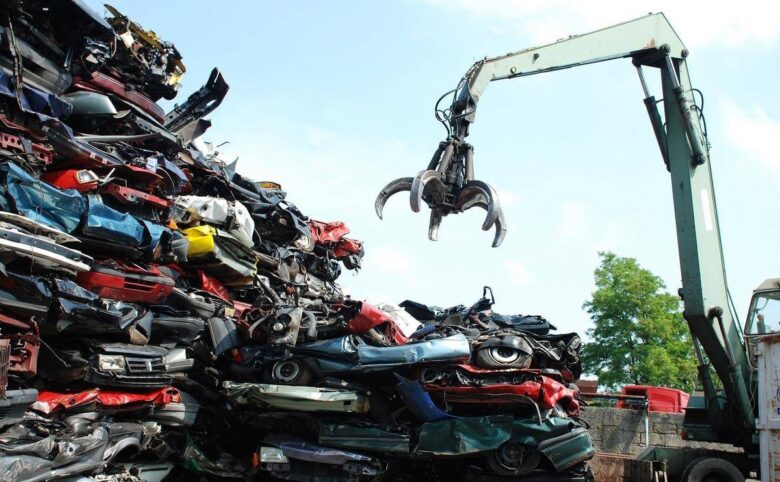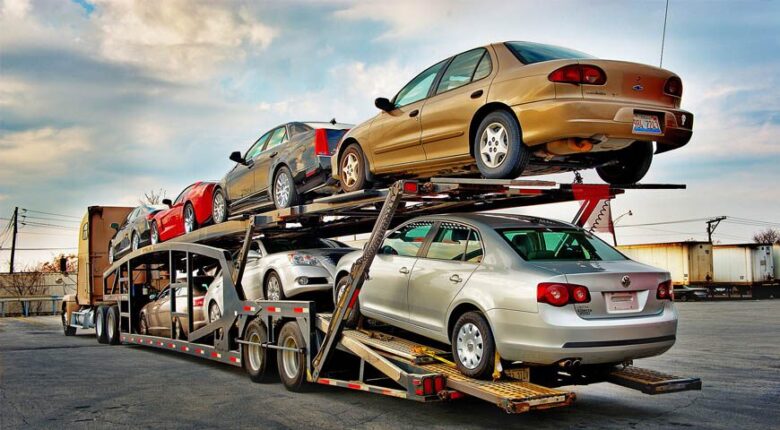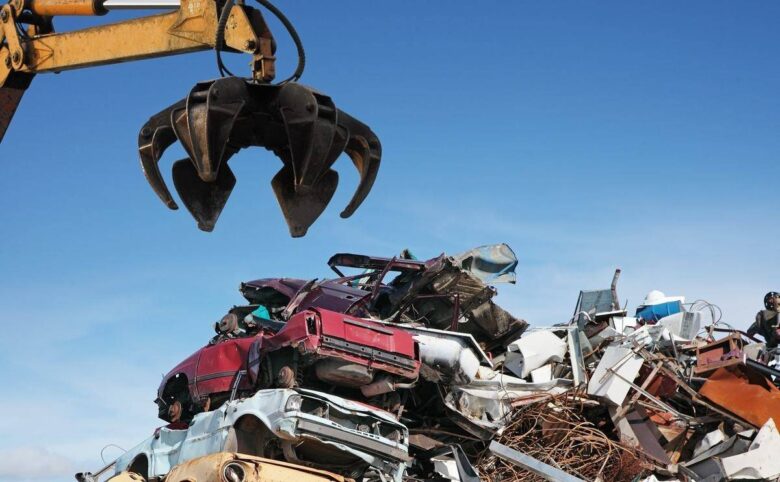When it’s time to part ways with your old vehicle, scrapping it for cash is a practical solution. It clears up space and brings in some extra money. Yet, the process of scrapping a car can sometimes come with unexpected costs, potentially outweighing the financial benefits. However, what if you could maximize your gains and minimize your expenses during the scrapping process? In this comprehensive guide, we’ll delve into fifteen effective strategies to save money when scrapping your car for cash.
Contents
- 1. Compare Rates for Optimal Deals
- 2. Sell Individual Valuable Parts
- 3. Clear Personal Belongings
- 4. Negotiation for Better Deals
- 5. Seize Special Promotions
- 6. Choose the Timing Wisely
- 7. Consider Environmental Benefits
- 8. DIY Preparation
- 9. Proper Documentation
- 10. Invest in Vehicle Transport
- 11. Explore Tax Deduction Possibilities
- 12. DIY Dismantling and Preparation
- 13. Consolidate Scrap Items
- 14. Research Weight-Based Pricing
- 15. Be Cautious of Additional Fees
1. Compare Rates for Optimal Deals

Source: freewayinsurance.com
Much like comparing car insurance rates, it’s vital to shop around and find the best deal for your scrapped car. Obtain quotes from different dealers and compare their offers. Request estimates from at least three distinct places. This thorough comparison ensures that you select the dealer offering the most advantageous deal for your vehicle. You might be surprised by the variation in offers, and investing the time to compare can lead to substantial savings.
2. Sell Individual Valuable Parts
Before committing to scrapping the entire car, take note of valuable parts that still retain value. Instead of scrapping the whole vehicle, consider selling these parts to an auto salvage yard such as cash for car which is based locally. Items like tires, batteries, and catalytic converters can be removed and sold separately. This step can result in additional earnings from the parts that hold value. Many scrapyards are interested in purchasing these components, and by selling them separately, you could recoup a significant portion of the overall value of the vehicle.
3. Clear Personal Belongings
To avoid unnecessary charges, remove all personal items from the car before scrapping it. Items such as bags, clothing, and chargers should be taken out. Certain cash-for-car yards may impose extra fees for removing these belongings. By doing it yourself, you save money and ensure a smoother scrapping process. Additionally, this step minimizes the chances of any valuable personal items being accidentally discarded.
4. Negotiation for Better Deals

Source: etags.com
When presented with a quote from a scrap dealer, don’t hesitate to negotiate. Attempt to haggle and inquire whether a better offer is possible. Many dealers have room for negotiation, and your efforts might lead to an improved deal. This simple step can significantly impact your final payout. Polite and respectful negotiation can yield surprising results, potentially putting more money in your pocket than you initially anticipated.
5. Seize Special Promotions
Stay attentive to special promotions offered by dealers throughout the year. These could encompass loyalty bonuses, discounts, or even free towing services. Capitalize on these promotions when available, as they have the potential to substantially reduce your scrapping costs. Keep an eye on social media, local advertisements, and online platforms for these limited-time offers that can significantly enhance your scrapping experience.
6. Choose the Timing Wisely
The timing of when you choose to scrap your car can influence the financial outcome. Opting for the off-season could be more advantageous. Prices for metals typically rise during peak seasons like summer and fall. By scrapping your car during the off-season, you might secure a more lucrative deal due to reduced demand. Moreover, scheduling your scrapping during a period when you can give the process your full attention might also lead to better negotiation and a more advantageous deal.
7. Consider Environmental Benefits

Source: car.co.uk
When scrapping your car, it’s not just about the financial gains. Consider the environmental impact as well. Some scrapyards and recycling centers may offer additional incentives or discounts for vehicles that are more eco-friendly. If your car is fuel-efficient or has components that can be recycled easily, inquire about any environmental incentives available. By aligning your scrapping process with sustainability, you might save money while contributing positively to the planet.
8. DIY Preparation
Taking a DIY approach to prepare your car for scrapping can save you money. Instead of paying a service to do it, you can remove non-valuable parts that might incur additional charges, such as plastic trims, non-metallic parts, and lightweight components. While this requires some mechanical knowledge, it can significantly cut down on labor costs and potentially increase the overall amount you receive.
9. Proper Documentation
Ensure you have all the necessary documentation in order when scrapping your car. Some scrapyards may require proof of ownership and a clear title. Having these documents ready can expedite the process and prevent any potential delays that could result in additional fees. Being organized and prepared can save you time and money during the scrapping procedure.
10. Invest in Vehicle Transport

Source: medium.com
If your scrapped car isn’t operational, you might need to arrange for its transportation to the scrapyard. While some scrapyards offer towing services, they might charge for this service. To save on towing costs, consider arranging your own transportation. If you have a friend with a suitable vehicle or can rent a trailer, you could potentially save money on towing fees.
11. Explore Tax Deduction Possibilities
In some regions, you might be eligible for tax deductions when you scrap your car for cash, especially if you donate it to a registered charity. Donating a vehicle to a charitable organization can not only help a cause you believe in but also potentially provide you with a tax deduction. Before proceeding, check the local tax regulations and consult with a tax professional to understand the potential benefits.
12. DIY Dismantling and Preparation
Taking a more hands-on approach by dismantling and preparing your car for scrapping can save you even more money. If you’re mechanically inclined and have the necessary tools, you can disassemble the vehicle, separating valuable parts from the rest. This can not only reduce the labor costs associated with dismantling but also enable you to sell these valuable parts independently for additional profit.
13. Consolidate Scrap Items

Source: deskera.com
If you have other metal or scrap items lying around, consider consolidating them along with your car for scrapping. Some scrapyards offer better rates when you bring in a larger volume of scrap metal. By bundling various items together, you might be able to negotiate a more favorable deal for the entire lot, effectively increasing your overall earnings.
14. Research Weight-Based Pricing
Certain scrapyards offer pricing based on the weight of the vehicle rather than its individual parts. This can work to your advantage if your car is relatively heavy. Prior to scrapping, research scrapyards that employ this pricing model and compare it with part-based pricing. Depending on your vehicle’s weight and the prevailing market rates for scrap metal, this could potentially lead to a better financial outcome.
15. Be Cautious of Additional Fees
Before finalizing any agreements with a scrapyard, carefully review their terms and conditions. Be cautious of any hidden or additional fees that might be incurred during the scrapping process. While many reputable scrapyards operate transparently, understanding the fine print can prevent unwelcome surprises that could impact your bottom line.
Conclusion

Source: thescrappers.co.uk
Scrapping your car for cash offers both financial benefits and a chance to declutter your space. However, it’s essential to approach the process strategically to maximize your earnings and minimize expenses. By comparing rates, selling valuable parts, clearing personal items, negotiating, capitalizing on special promotions, choosing the right timing, and considering environmental factors, you can optimize your scrapping experience.
Remember that each step you take to save money can add up, resulting in a more favorable financial outcome. Whether it’s through savvy negotiation or selling valuable components, your efforts can contribute to a more lucrative scrapping experience.
Before you embark on the scrapping journey, research your local scrapyards, explore their offerings, and understand their requirements. By being well-informed, you can make informed decisions that align with your financial goals.
In conclusion, scrapping your car for cash doesn’t have to be a one-dimensional transaction. It’s an opportunity to extract value from an old vehicle while also considering environmental impacts and sustainability. With these comprehensive strategies at your disposal, you can confidently navigate the process, turning it into a financially rewarding and environmentally conscious endeavor.
